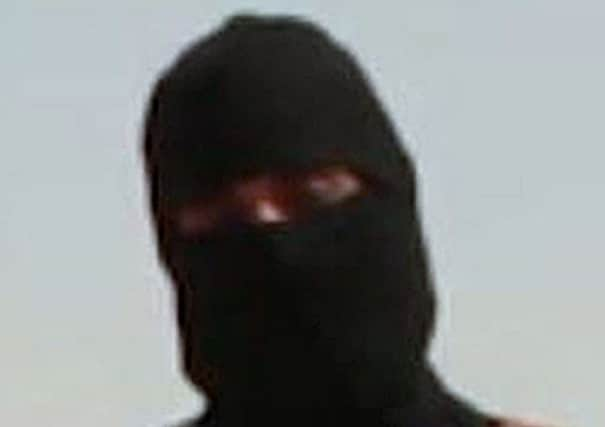‘Jihadi John’ thought MI5 stalked him on Gumtree


Mohammed Emwazi, who was last week identified as “Jihadi John”, told a journalist he was a “dead man walking” after run-ins with intelligence officials before he fled to Syria.
In an e-mail exchange with the reporter Robert Verkaik, which took place in 2010 and 2011, Emwazi said he considered suicide after coming face to face with what he suspected to be a British spy as he attempted to sell a laptop computer in 2010.
Advertisement
Hide AdAdvertisement
Hide AdEmwazi described how he became suspicious of the mystery buyer after listing his laptop for sale on Gumtree.
It was also claimed yesterday that Emwazi was part of a cell orchestrated by Osama Bin Laden to wreak terror on the streets of London, including having a role in the failed 21 July bomb attacks in 2005, three weeks after the 7/7 bombings which killed 52 people and injured more than 700.
Emwazi told Mr Verkaik, a journalist with the Mail on Sunday, that he felt harassed by security services.
In a series of e-mails in 2010, three years before he left to join IS, he said: “Sometimes I feel like a dead man walking, not fearing they [MI5] may kill me. Rather, fearing that one day, I’ll take as many pills as I can so that I will sleep for ever! I just want to get away from these people!”
Details of the exchanges emerged as the British security services came under renewed pressure over accusations of failing to keep track of potential terror suspects and forcing desperate British Muslims into the clutches of Islamic extremist groups.
Kuwait-born Londoner Emwazi had been pinpointed as a potential terrorist by the British authorities but was able to travel to Syria in 2013 and join a group responsible for the murder of several Western hostages.
A former independent reviewer of government anti-terror laws said Emwazi might have been prevented from joining up with IS had restrictions on suspects not been relaxed.
“Had control orders been in place, in my view there is a realistic prospect that Mohammed Emwazi, and at least two of his associates, would have been the subject of control orders with a compulsory relocation,” Lib Dem peer Lord Carlile said yesterday.
Advertisement
Hide AdAdvertisement
Hide Ad“If that had been the case, he would not have done what he’s done in recent times.”
A power to force suspects to move to another part of the country – dropped when control orders were axed in favour of terrorism prevention and investigation measures (Tpims) – has now been restored.
The former head of MI6 also hit back at claims that the security services played a role in Emwazi’s radicalisation. Sir John Sawers, head of MI6 from 2009 to 2014, said arguments that harassment drove Emwazi to join IS were “very specious”.
Jihadi John rose to notoriety after he first appeared in a video posted online last August, in which he appeared to kill American journalist James Foley.
Dressed in black with a balaclava covering all but his eyes and the ridge of his nose, he reappeared in videos of the beheadings of US journalist Steven Sotloff, British aid workers David Haines and Alan Henning, and US aid worker Peter Kassig.
Reports over the weekend suggested Emwazi was part of a terror cell dubbed The London Boys, which included three members – closely linked to Emwazi – who allegedly trained at an al-Qaeda camp. Details of his involvement in the cell were reportedly disclosed during a court hearing in 2011 – two years before Emwazi fled for Syria.
Shadow home secretary Yvette Cooper claimed the security services’ hands were tied for nearly five years by Mrs May’s “wrong” decision to scrap powers to move terror suspects away from their networks.
Relocation powers have been reintroduced by the coalition this year but Ms Cooper called for the security services to immediately brief the intelligence and security committee on how the loss of the measures might have affected their work.
Advertisement
Hide AdAdvertisement
Hide AdThis would allow MPs to review whether the loss of relocation powers had led to more British jihadists travelling to Syria and Iraq and more radicalisation in the UK, she said.
Meanwhile yesterday the British armed forces were praised for their work in fighting IS extremists during a visit by the Defence Secretary.
Michael Fallon told the 400 personnel based at RAF Akrotiri in Cyprus how he was “proud” of their role in helping the Iraqi government defend itself against the threat of IS.
He said: “While this fight will take time, the coalition’s air strikes are having a direct effect in supporting Iraqi ground operations against IS.
“In the north, areas around Mount Sinjar have been retaken, bringing relief to the local Yazidi population and applying pressure to IS forces in Mosul.”